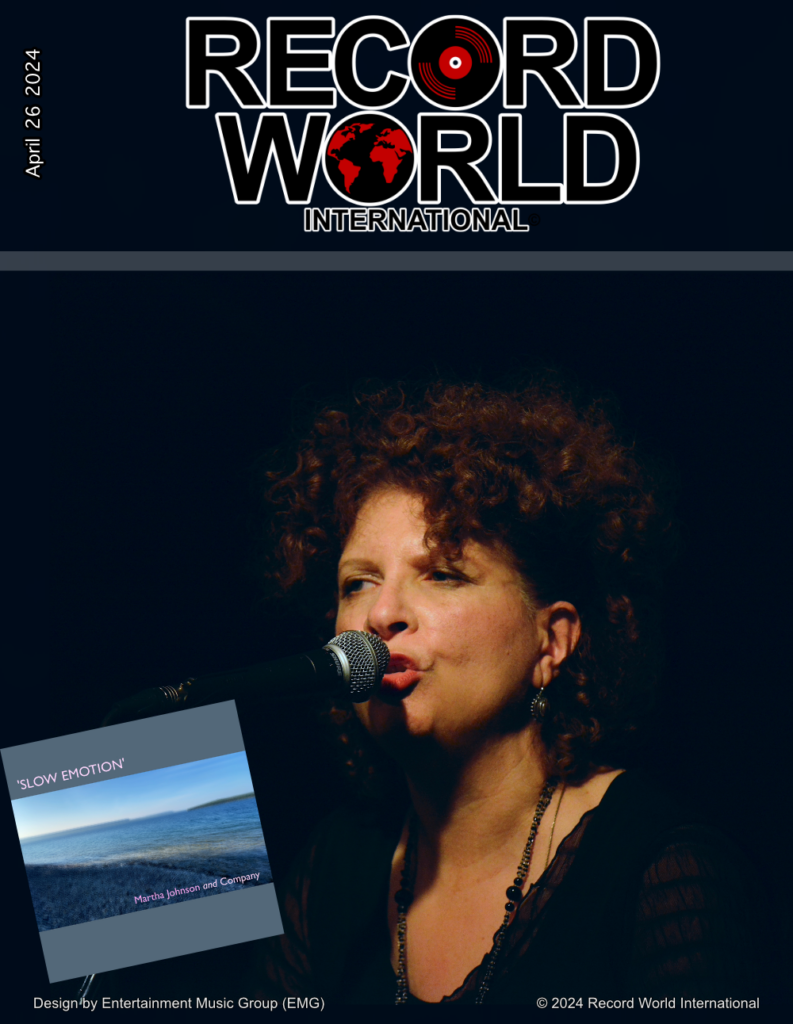They say music can be the best therapy but leave it to community-minded Canadian legend Martha Johnson to make her music a form of group therapy. Her new single, “Slow Emotion,” is a fortifying hit of emotional oxygen for those living with Parkinson’s Disease. That’s a topic relevant not just to Johnson herself—who was diagnosed with the condition nearly a quarter-century ago—but to every fellow patient she’s met or just envisioned along the way.
Check out “Slow Emotion” on YouTube here: https://www.youtube.com/watch?v=gG20EFHRqVo
According to Parkinson Canada, more than 100,000 people in Canada live with Parkinson’s. For people affected by Parkinson’s, help across the country is available in the form of support groups and resources. Find help near you by visiting www.parkinson.ca
Seeing release under the project name Martha Johnson and Company, the song furthers the reputation for courageous exploration Johnson has carved out as co-founder and lead singer of the seminal art-pop band Martha and the Muffins (sometimes just M+M), and in numerous other projects that have kept her at the vanguard of contemporary audio and video art. This time, she’s used soothing keyboard pads and an easygoing, quasi-R&B bounce to send a message about the need to stop, listen and relate:
Empathy not sympathy
That’s where we want to be
Take it slow, then you’ll know
How to be kind
How to free your mind
That’s where we want to be
I’m moving in slow emotion now…
“I came up with the title ‘Slow Emotion’ years ago,” Johnson says, “and it seemed like a good fit with the theme of accepting and adapting to the changes—both physical and emotional—that you go through when you are living with Parkinson’s Disease.
“One of my favourite lyrics, ‘Empathy not sympathy…,’ sums up the message of the song very well. I also like the randomness of referencing the title of a J.M.W. Turner painting as a line that has so much power in it: ‘No rain, steam or speed.’
The Making Of “Slow Emotion”: https://www.youtube.com/watch?v=IaLJqWckuFQ&feature=youtu.be
The song came about thanks to a suggestion from Johnson’s neurologist, Dr. Alfonso Fasano at University Health Network (UHN)’s Krembil Brain Institute in Toronto, who felt he could help promote awareness of Parkinson’s to a wider audience while showing that life and creativity don’t end with a diagnosis. Dr. Fasano encouraged Johnson to collaborate with another of his patients, songwriter/musician Fabio Dwyer, and the two hit it off, combining their individual ideas into a cohesive whole. As a third voice, Johnson brought along Mark Gane, her perennial partner in Martha and the Muffins/M+M, to finish the composition. Then it was off to the studio.
UHN’s Krembil Brain Institute https://www.uhn.ca/Krembil/
“We wanted to have as many people as possible with PD involved in the recording,” Johnson says. “Fabio had already collaborated with me on writing the song, and he also played guitar and bass beautifully on the track. I managed to find five people with PD who were excited about adding their voices to the song. The vibe in the studio was amazing, and we were all so proud to have recorded a chorus of voices lifting everyone’s spirits higher.”
Bringing everything full circle, Dr. Fasano—a talented musician in his own right—contributed keyboards to the finished track.
The single will be available worldwide on all platforms on World Parkinson’s Day, April 11, 2024. It’ll be accompanied by a “making-of” documentary shot by Toronto filmmaker Jason Cipparrone (and produced with the support of UHN and Parkinson Canada).
That day will mark a highly personal milestone for Johnson, within a career that’s already seen plenty of them. Since co-founding Martha and the Muffins in 1977, she’s been involved with 11 albums, three of them co-produced by band discovery Daniel Lanois (who went on to win Grammys for his work with artists like Peter Gabriel and U2). The group has had five Top 40 hits in their native Canada, and won the 1980 JUNO Award for Single of the Year for their international hit “Echo Beach.” Timeless follow-ups like “Swimming” and the Dancesparc album further burnished the Muffins’ sterling reputation for canny songcraft. And with the 1984 dancefloor breakout “Black Stations/White Stations,” (Number 2 on the U.S. Billboard Dance chart), Johnson and her group took the lead in exposing the racist underpinnings of big radio.
As a solo act, Johnson hit the Top 10 in Germany, Austria and Switzerland with the song “Troy,” which she co-wrote with German hip-hop group Die Fantastischen Vier. (The tune was later used in the O2 mobile phone company’s advertising campaign for the 2006 FIFA World Cup.)
The birth of her daughter inspired Johnson to release the collection Songs from the Tree House, which won the JUNO for Best Children’s Album in 1996. She then embarked on a career as a children’s performer for several years with the Toronto nonprofit Prologue to the Performing Arts.
Her 2000 diagnosis with Parkinson’s was the catalyst for Johnson to stop performing live. Instead, she threw her energies into making records—both new releases and Martha and the Muffins reissues. She and Gane also launched a fruitful side career scoring films and TV programs.
In 2013, Johnson released her debut solo album, SOLO•ONE, which she co-produced with Ray Dillard and Gane, and which featured three tracks co-written by JUNO Songwriter of the Year Ron Sexsmith.
Today, Johnson continues to collaborate with younger singer/songwriters and work on new recording projects. Most recently, in January 2024, Martha and the Muffins released a haunting cover version of the Buffalo Springfield classic “For What It’s Worth,” which Johnson and Gane had played and recorded entirely on their own at their home studio. The accompanying video, also directed by Cipparrone, generated over 50,000 views on YouTube.
The release of “Slow Emotion” maintains Johnson’s seemingly unstoppable forward momentum—ironically in the context of a song that urges everyone to consider living life at a slightly more relaxed pace.
“I’m hoping that people are moved by the song to a place of better understanding,” she says. “Parkinson’s is continuously a life-changing event for me. Beyond that, generally speaking, life is what you make of it, and you’ll have a better time if you just slow down a little and really take it all in. I think that’s relevant to everyone.”

